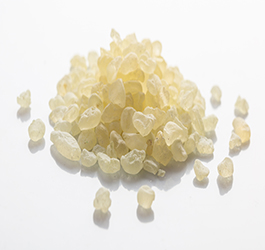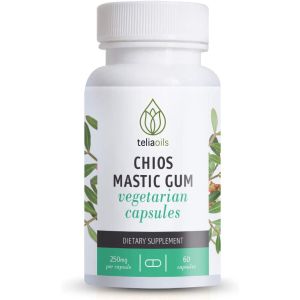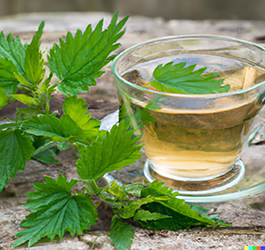Does Mastic Gum Get Rid of H. pylori? Exploring the Potential of This Natural Resin in Combating Harmful Bacteria

Mastic, a resin sourced from the mastic tree (Pistacia lentiscus), has a long history of use in traditional medicine and culinary applications. With its unique flavor and potential health benefits, mastic has sparked interest in the scientific community. One area of focus is its potential impact on Helicobacter pylori (H. pylori), a bacterium implicated in various gastrointestinal issues. In this article, we will examine the evidence supporting mastic gum's effectiveness in eliminating H. pylori and discuss its potential role in maintaining gastrointestinal health.
Mastic Gum and Its Antimicrobial Properties
Mastic contains compounds that have demonstrated antimicrobial activity against a range of bacteria, including Helicobacter pylori. H. pylori infection is associated with gastritis, peptic ulcers, and even stomach cancer. Research suggests that mastic may help inhibit the growth of Helicobacter pylori, potentially reducing the risk of associated gastrointestinal complications.
Scientific Studies on Mastic Gum and Helicobacter pylori
Multiple studies have investigated the potential of mastic in combating H. pylori. Some in vitro studies have shown that mastic can inhibit the growth of H. pylori strains. Additionally, animal studies have demonstrated that mastic can reduce H. pylori-induced gastric inflammation. However, human clinical trials have yielded mixed results, with some showing a significant reduction in H. pylori levels while others have not. Further research is needed to determine the most effective dosage and duration of treatment for mastic to eradicate H. pylori.
Mastic Gum as a Complementary Treatment
While mastic shows promise in fighting H. pylori, it is essential to note that it may not be a stand-alone treatment. Conventional treatment for H. pylori infection involves a combination of antibiotics and acid-suppressing drugs. Mastic gum could potentially serve as a complementary therapy alongside standard treatments, but it is crucial to consult with a healthcare professional before using mastic gum for this purpose.
Considering Safety and Side Effects
Mastic is generally considered safe for most people when consumed in moderate amounts. However, some people may experience side effects such as digestive discomfort or allergic reactions. It is essential to consult with a healthcare professional before using mastic, particularly if you are pregnant, breastfeeding, taking medications, or have a pre-existing medical condition.
Incorporating Mastic Gum into Your Routine
If you are considering using mastic to help combat H. pylori or to treat other gastrointestinal concerns, consult with a healthcare professional to determine the appropriate dosage and form of mastic gum for your needs. Mastic is available in various forms, including gum, powder, capsules, and essential oil. Always follow the manufacturer's instructions and seek professional guidance to ensure safety and suitability for your specific situation.
Mastic has shown potential in fighting H. pylori due to its antimicrobial properties. However, human clinical trials have yielded mixed results, and further research is needed to establish the optimal dosage and duration of treatment. Mastic can serve as a complementary therapy alongside conventional treatments, but it is essential to consult with a healthcare professional before using it for this purpose. Always seek expert advice to ensure the safe and appropriate use of mastic gum for your unique needs.

 de
de el
el










